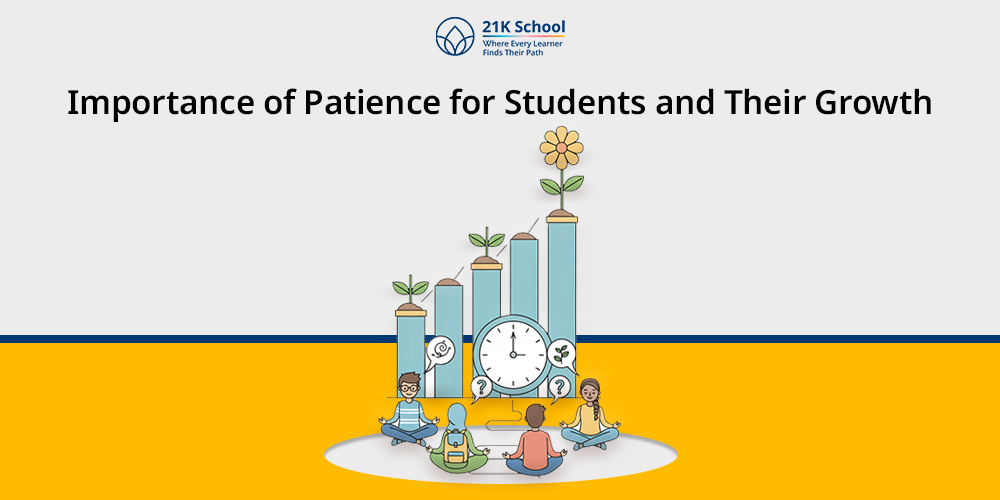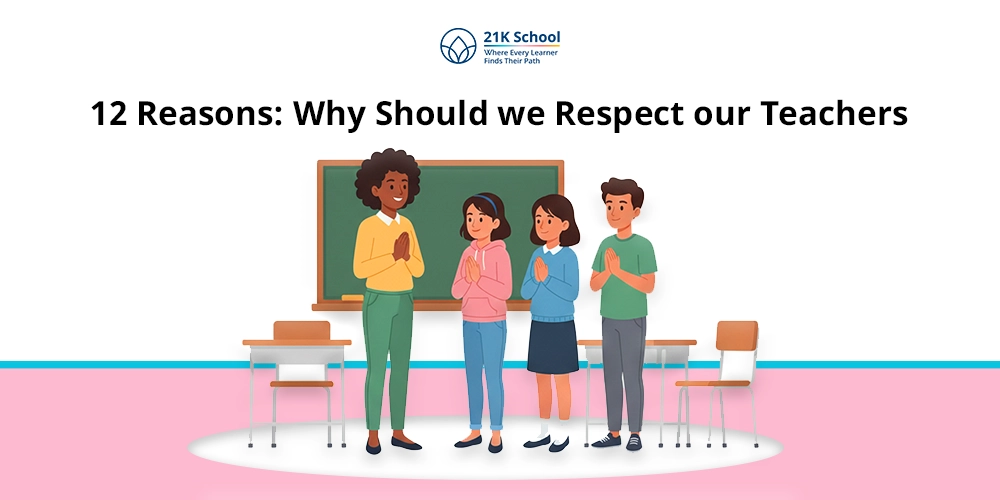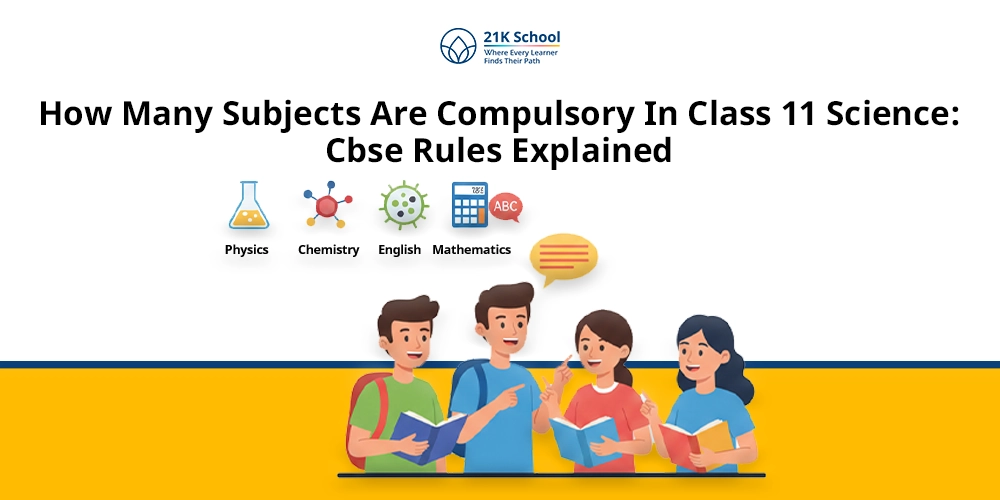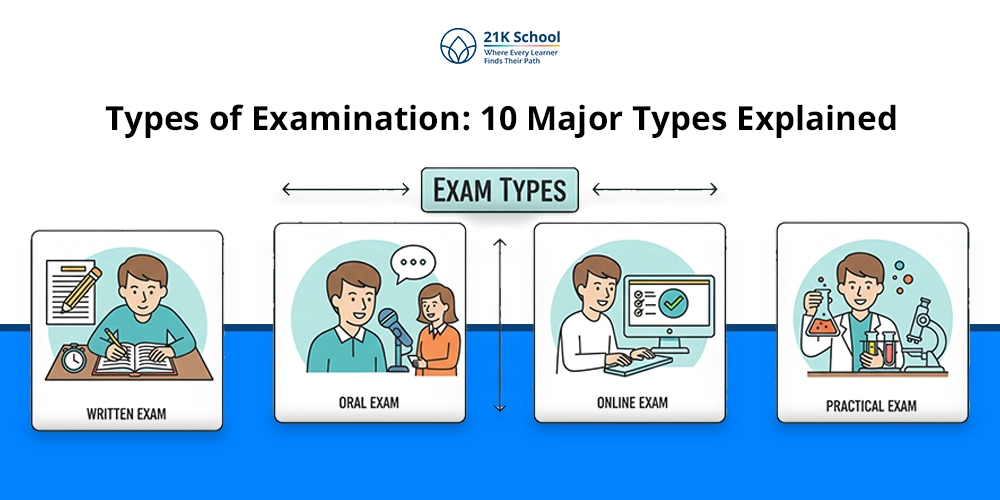
In general life patience has been appreciated for years but now it has increased in value.
This highly fast generation, where you see people rushing through everything, students should be motivated to learn and acquire patience as a skill .
Patience can positively affect the professional, social, and personal aspects of the learners’ life, which is why its acquisition is needed.
The following article is presented to let you know the importance of patience for students. You will also look at methods to build patience in your students.
Contents
- 1 What is Patience for Students?
- 2 10 Importance of Patience for Students
- 2.1 1. Improve Learning and Understanding
- 2.2 2. Builds Resilience in the Face of Failure
- 2.3 3. Enhance Emotional Regulation
- 2.4 4. Encourages Goal Setting and Long-term Thinking
- 2.5 5. Improved Relationship with Teachers and Peers
- 2.6 6. Reduces Stress and Burnout
- 2.7 7. Supports Better Decision Making
- 2.8 8. Encourages a Growth Mindset
- 2.9 9. Builds Self Discipline
- 2.10 10. Patience is a Lifelong Skill
- 3 How to Develop Patience for Students?
- 4 Concluding Comments
What is Patience for Students?
Patience for students might mean giving more time to complex subjects or problems without losing their temper.
When life tests you, every adult will tell you to have patience and that the time will change.
So is it just that? Just waiting for things to change on its own and doing nothing about it?
You can consider patience to be the skill to stay in control of your emotions so that you make better decisions in critical or challenging situations.
And yes patience tells you to set your composure when your educational journey becomes tiring and confusing.
10 Importance of Patience for Students
You might not yet realise it but there are many importance of patience for students. Here’s the list:
1. Improve Learning and Understanding
A student having patience can give chances to themselves to read, learn and grasp the conceptual design of tough subjects.
They understand that it is fine if sometimes they don’t get it in one go. And that with their critical thinking they can still learn them.
They need to pay better attention with a calm mind and that actually can push them towards understanding and clarity rather than mulling.
2. Builds Resilience in the Face of Failure
Instead of getting demoralised and scared of difficult questions, patience assists you in setting your mind to be careful and then try again.
Through patience, children develop higher chances of building resilience and come back better after working on their weaknesses.
They get that failures are just reminders that they need to work with vision and patience, and they can achieve anything.
Explore importance of resilience of students .
3. Enhance Emotional Regulation
For actually being capable of noticing changes and shifts in our moods or emotions during basic life hustles, patience plays a key role.
We often forget to sit down and try to manage these emotions as they come and go, leading to emotional distress and daily conflicts.
When we have patience for ourselves and others, we try to go deeper and deal with issues with understanding along with empathy .
4. Encourages Goal Setting and Long-term Thinking
It can be tough at times for learners to learn everything instantly.
Those students who have patience would think long term to achieve their goals and work towards it.
You will notice such children are far from instant gratification and come up brighter and best with their never giving up attitude.
5. Improved Relationship with Teachers and Peers
We have already discussed how patience is a component of empathy.
So when we understand others’ emotions, we naturally form relationships that are long-term and reliable for us.
Patience works for both relationships. Be it with friends or teacher-student relationships .
6. Reduces Stress and Burnout
Isn’t it true that people get stressed out over many things? But how you deal with such stressors and burnout is the real game.
In classrooms, learners might face challenges due to their academic performance pressure and feel exhausted many times. Learn how to improve you childs academic performance .
Here, patience and the belief that things will change eventually if they stay consistent pulls them out of these situations.
7. Supports Better Decision Making
Better decision making is a product of calm and collected mind, which happens only if you know patience.
During their study age, children often get to make decisions related to their academic choices, extracurricular activities , or choosing group members.
And in these situations they should have a hold of their minds to end up with the future jobs in the 21st century .
8. Encourages a Growth Mindset
Patience can boost the levels of consistent practice and perseverance that are needed for a growth mindset .
When students want to achieve something really big in their lives, they depend on delayed gratification.
This assists them in putting continuous efforts towards their goals and have a belief that growth takes time but is inevitable eventually.
9. Builds Self Discipline
Discipline requires a positive attitude while you work on yourself and the results are yet to come.
With patience only, discipline can take its form and make place in a student’s study routine .
If it were your personality development or personal growth or even career success, everything would be non-existent without having student discipline and patience to manifest best outcomes.
10. Patience is a Lifelong Skill
Like any other useful skill, patience continues to serve as real life skills and helps you navigate life with its multiple uses.
This is why you hear from almost everyone that “be patient.” Either be it your relationship, academics, or even just normal life circumstances, patience makes everything more clear and adaptable.
Patience can be tested whenever required throughout your life and used as a lifelong learning .
How to Develop Patience for Students?
We would like to draw your attention and remind you that patience is learnable.
Now, you need to know how to develop patience for students, if you want your kids or students to have patience as they grow into better humans.
First of all, we need to remember that children look up to their parents while growing up. Hence, it becomes the responsibility of parents to behave patiently in front of their kids, so that they learn the same from them.
As parents you might think that my kid should get everything that they want instantly, but that would actually make your kid impatient in the coming time.
So, let them develop patience by teaching them delayed gratification and reinforcing such behaviours with words of praise and small gifts.
You can also teach some mindfulness activities to them from a younger age so that your kids learn to focus on now rather than obsessing too much on what’s next. This also builds patience in them.
Concluding Comments
Patience is a virtue whose real use is realised as we grow up and face some real setbacks in life.
Your students or children learn patience from their surroundings. Therefore you have to be prepared with ways that would teach them that.
We hope the above piece was sufficient to let you know the importance of patience for students and how you can teach it to your kids.



